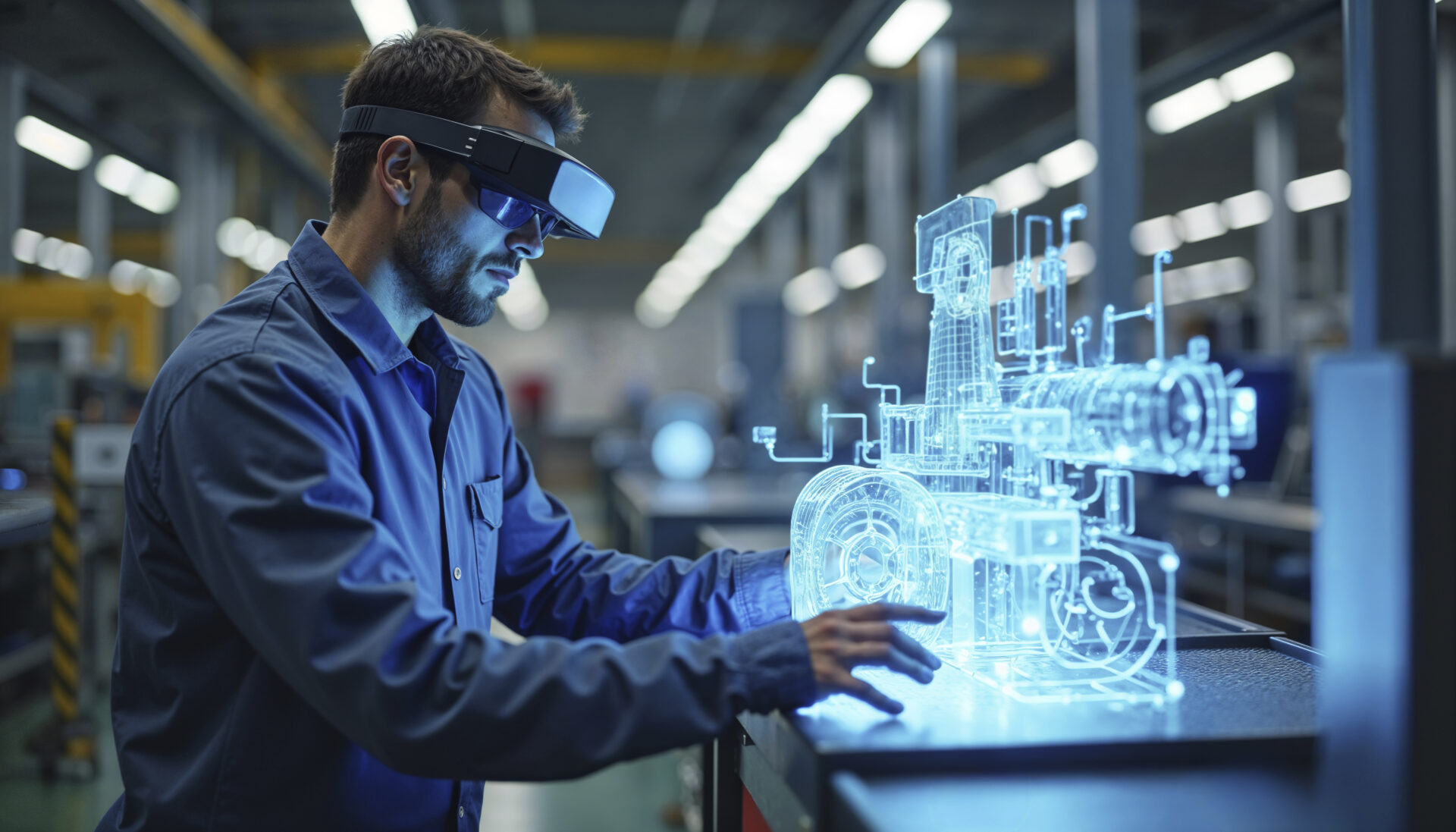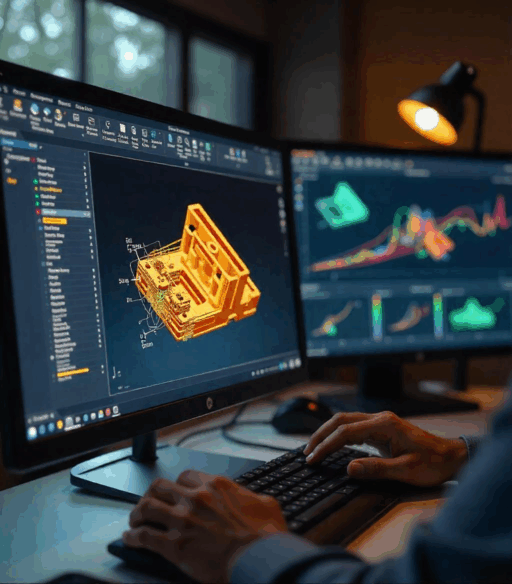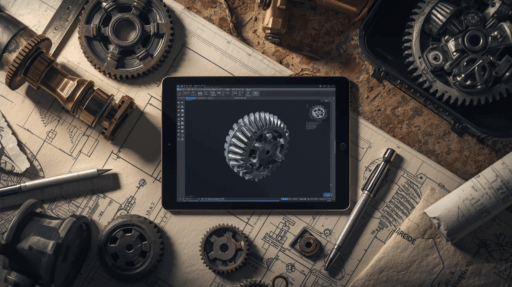Did you know India sold over 1.5 million electric vehicles in 2024 alone? That’s a 45% jump from the previous year—proof that the Electric Vehicle industry isn’t just coming, it’s already here. And if you’re a mechanical engineer, you might be sitting on one of the most future-proof career opportunities of this decade.
While EVs might seem all about batteries and electronics, their heart still beats with mechanical systems—from chassis and drive trains to cooling and safety. The EV industry is evolving fast, and companies are actively hiring mechanical engineers who can bridge the gap between legacy automotive knowledge and futuristic electric mobility. So, if you’re wondering how to build a rewarding career in mechanical engineering, this is your moment. Let’s dive into why this is your time—and where you can fit in.
Why Mechanical Engineers Are Vital to the EV Industry?
Contrary to popular belief, EVs aren’t just electrical engineering marvels. They’re complex, multidisciplinary machines that rely heavily on mechanical systems and deep expertise in
EV requirements:
- Lightweight structural design for energy efficiency
- Thermal management for battery packs and motor systems
- Vibration reduction, crash safety, aerodynamics
- Advanced manufacturing processes, assembly, and performance testing
- Integration of electric drivetrains with robust mechanical platforms
Mechanical engineers play a mission-critical role in the EV sector, bringing the essential know-how to make electric vehicles not only efficient but also safe, scalable, and built to last.
Top Career Opportunities for Mechanical Engineers in the EV Industry
Here are the most in-demand roles mechanical engineers can explore in 2025:

1) EV Design & Development Engineer:
From conceptualizing the vehicle structure to simulating performance under real-world conditions, an EV design engineer plays a pivotal role in turning ideas into high-performance machines.
You’ll use CAD/CAE tools to design components, simulate aerodynamics, optimize weight, and ensure crashworthiness—while also focusing on seamless part integration across systems.
Top Tools: SolidWorks, CATIA, ANSYS, Altair
2) Battery Pack Mechanical Engineer:
The battery is the soul of an EV—and its packaging and protection are engineering challenges in themselves. Mechanical engineers in this role are responsible for designing robust housing structures, effective cooling systems, and ensuring compliance with safety standards.
You’ll work on vibration resistance, thermal performance, and structural integrity—ensuring the battery pack is not only efficient but also protected under extreme conditions.
Trends: With India’s new battery recycling rules and the rise of gigafactories, this role is exploding in demand.
3) Thermal Systems Engineer:
Did you know battery performance can drop by 40% if not cooled properly? That’s where thermal management in EV systems becomes critical. Thermal engineers are responsible for designing EV cooling systems like HVAC units, liquid-cooled plates, and thermal pathways that manage heat across batteries, inverters, and motors.
Their expertise ensures efficiency, safety, and longevity of electric vehicles—especially in India’s hot climate.
In Demand At: Ola Electric, Ather, Tata EV, and a wave of new-age startups.
4) Manufacturing & Production Engineer:
EVs demand a highly controlled EV manufacturing process—from stamping lightweight components to final vehicle assembly on robotic lines. Mechanical engineers play a key role in optimizing workflows, integrating robotics, and ensuring quality control.
They streamline production, apply lean manufacturing techniques, and increasingly work with Industry 4.0 technologies and Smart Factory systems for real-time efficiency gains.
Bonus: Familiarity with robotics integration is becoming a game-changer in modern EV plants.
5) Testing & Validation Engineer:
Before an EV hits the road, it must undergo rigorous performance checks to meet both global and local standards. As a Testing & Validation Engineer, you’ll lead durability tests, crash simulations, and thermal cycling to ensure the vehicle performs reliably under all conditions. You’ll also work on EV testing protocols to align with Indian regulations like AIS-156 and GSR norms, ensuring safety and road-readiness.
This role is critical in building trust and compliance in the growing EV landscape.
6) Vehicle Integration Specialist:
As a Vehicle Integration Engineer, your job is to ensure all major components—battery, electric drivetrain, vehicle body, and electronics—work seamlessly together. In short, you’re the architect of system integration in EVs.
You’ll collaborate across design, thermal, structural, and electrical teams to ensure fit, weight distribution, and packaging are optimized for performance and manufacturability. Think of it this way: you’re the glue that holds the EV ecosystem together—solving complex integration challenges before they hit the production line.
7) Research & Development (R&D) Engineer:
Want to work on next-gen EV concepts, lightweight materials, or solid-state battery integration?
R&D engineers in the EV industry are the pioneers driving innovation. They develop future-ready platforms, experiment with lightweight materials for efficiency, and explore sustainable alternatives in design and production. This role also opens doors to EV consulting, where experts guide startups and OEMs on technology strategy and implementation.
Hiring Companies: ISRO, Tata Elxsi, Mahindra EV, Bosch, and global EV research hubs.
Global Demand & Future for Mechanical Engineers in EV Sector:
Globally, the EV market is projected to grow from $388 billion in 2023 to over $950 billion by 2030, driven by rapid advancements in EV infrastructure and sustainable mobility initiatives.
In India alone:
- EV component manufacturing is expected to generate over 5 million jobs by 2030
- NITI Aayog forecasts a 70% adoption rate in two-wheelers and three-wheelers by 2027
- Global OEMs like Tesla, BYD, and VinFast are aggressively investing in the Indian EV sector
This explosive EV industry growth is creating a massive talent gap—especially for mechanical engineers who can bridge the gap between legacy automotive systems and cutting-edge EV technologies.
Skills Required to Succeed in the EV Industry
To thrive in this fast-evolving field and build a long-term career in mechanical engineering within the EV domain, here’s what you need to master:
Core Mechanical Skills:
- Design & Drafting (CAD/CAM)
- Finite Element Analysis (FEA)
- Materials Science & Lightweight Structures
EV-Specific Knowledge:
- Battery thermal management
- Vehicle Dynamics & NVH
- Electric Powertrain Mechanics
Digital Tools:
- MATLAB/Simulink for simulation
- Creo, SolidEdge, AutoCAD
- PLM Tools like Teamcenter
Certifications & Courses:
Top recruiters now look for certified talent. CADD Centre offers industry-oriented EV certification courses that combine hands-on training with mentorship from experts—tailored specifically for mechanical engineers aiming to make their mark in the EV industry.
Conclusion
The electric vehicle industry boom is not just a trend—it’s a tectonic shift in how the world moves. For those in mechanical engineering, this is more than a job market—it’s a calling to reimagine mobility. Whether you’re a student planning your next move or a professional looking to reskill, the EV sector offers vast, high-impact, and future-ready roles for mechanical engineers.
At CADD Centre, our mechanical engineering courses with an EV focus are designed to give you hands-on experience in simulation, design, battery systems, and more—so you can ride the EV wave with confidence.
The future is electric. The engineers who shape it? That could be you.
Image source AI image generated from Freepik
FAQs
What are the best career opportunities for mechanical engineers in the EV industry?
Mechanical engineers can explore diverse roles such as EV Design Engineer, Battery Pack Mechanical Engineer, Thermal Systems Engineer, Manufacturing & Production Engineer, Testing & Validation Engineer, and R&D Specialist. Each role contributes to the vehicle’s safety, performance, and efficiency.
How can I transition from traditional mechanical roles to EV engineering?
Start by upskilling through specialized training in EV systems, battery technology, electric drivetrains, and thermal management. Enrolling in an EV certification course can give you a competitive edge and make your skills industry-relevant.
Why is the EV industry a good choice for mechanical engineers in 2025?
The EV industry is booming with government support, private investment, and a push for sustainability. As EVs become mainstream, mechanical engineers will play a pivotal role in bridging traditional automotive expertise with electric mobility innovation.
Are mechanical engineers still relevant in the electric vehicle industry?
Absolutely. Despite the shift to electric powertrains, mechanical systems remain critical—from chassis design and aerodynamics to thermal control and manufacturing. Mechanical engineers are vital to making EVs durable, safe, and scalable.
Which companies hire mechanical engineers for EV roles?
Top recruiters include Tata EV, Ather Energy, Ola Electric, Mahindra Electric, Bosch, ISRO, and startups in the EV and battery tech space. Global OEMs and R&D centers are also actively hiring mechanical talent with EV exposure.
Is certification important for mechanical engineers in EV careers?
Yes. With rapid changes in the EV sector, having certifications shows employers that you’re committed and up to date. Courses that offer hands-on training in EV design, simulation, and battery systems significantly improve your job prospects





